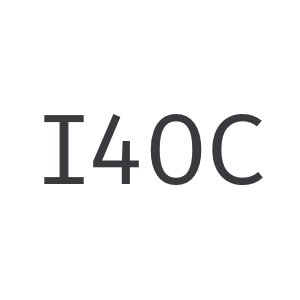The role of the Hygiene Department of Stephen Bathory University in the development and promotion of Public Health in Vilnius in the years 1922–1939
DOI:
https://doi.org/10.4467/2543702XSHS.18.004.9324Keywords:
Interwar period, Vilnius, Hygiene, Social medicine, Stephen Bathory University, Kazimierz Karaffa-Korbutt, Aleksander Safarewicz, Kasper Rymaszewski, Felix Kasperowicz, Janina Bortkiewicz-RodzewiczównaAbstract
Objective: During the interwar period, the healthcare system in Europe experienced a dramatic transformation. It was perceived that preventive medicine was no less important than curative medicine. Moreover, without proper prevention of the so-called social diseases, all later therapeutic measures were expensive and ineffective. The former battle against the consequences was replaced by measures targeting the causes. The fight against social diseases involved a state-owned strategy and a broad arsenal of measures. The University’s scholars also took part in this process. Our study revealed that the significance of the disease prevention in the Faculty of Medicine at the University of Stephen Bathory was well understood. Moreover, the treatment was not segregated from hygiene as strictly as it is today. Many hygienists as well as clinicians contributed to the development of preventive mechanisms. The broad specialization of doctors enabled them to see not only biomedical, but also social and economic aspects of a disease. Hygienists and doctors encouraged cooperation and coordination of their activities with the central and local authorities as well as education of the local population.
The progress of medical science in Europe and the World, as well as the Soviet ideology in Eastern Europe distracted doctors from the search for the etiology of social illness. Biomedical treatment had become much more effective, and the development of social hygiene research in Eastern Europe had experienced stagnation. For ideological reasons the disease etiology in the Soviet bloc could not be associated with social factors. Social hygiene in the Soviet Union was highly politicized; it could only be interpreted in a frame of Soviet models. The healthcare system that had been created in the Soviet Union was named as the best in the world. The actual medical statistics were concealed from the public, since their logical interpretation could reveal the social causes of illnesses and the disadvantages of the soviet system.
Sometimes we must return to basic ideas to improve current public health mechanisms. It is worth reconsidering fundamental questions, i.e. what public health is and how to achieve it. The breadth of the approach of the interwar Vilnius hygienists and doctors, the sensitivity to the social origins of diseases and persistence in combating them by all possible means could serve as an example for today’s doctors. At that time, hygienists approached the idea that the highest goal of prevention was to create a healthy environment, healthy living and working conditions. Although today we live in a much safer environment than those individuals did, new threats are emerging because of changing technology and lifestyle. The broad approach of physicians remains equally important in order not only to combat individual precedents, but also to overcome the preconditions for emerging precedents. Therefore, the purpose of this paper is to reveal the theoretical patterns of hygiene and public health established by the hygienists of the Vilnius Hygiene Department as well as the attempts to apply them in practice.
Methods: The study was conducted by analyzing the primary and secondary historical sources using the comparative method. A lot of data from the Lietuvos Centrinis Valstybės Archyvas (Lithuanian Central State Archives) that had been used in this research were published for the first time. According to the original archival data, an analysis of the scientific publications of the Faculty of Medicine of the University of Stephen Bathory was made to find out the priorities of the research carried out at that time.
Conclusions: The complicated economic conditions, the lack of support from the local and central government as well as the imperfections in health legislation of that time hindered the full implementation of the hygienist strategies of the University of Stephen Bathory. However, the activities of the Department of Hygiene of Stephen Bathory University had a significant impact on the development of hygiene science as well as medical practice in the Vilnius region during the Interwar period (1919–1939).
References
Archival materials
Lietuvos Centrinis Valstybės Archyvas (LCVA): f. 51 b. 51; f. 51, b. 126; f. 64, ap. 17, b. 39; f. 64, ap. 17, b. 108; f. 64, ap. 17, b. 109; f. 64, ap. 17, b. 175; f. 64, ap. 17, b. 245; f. 64, ap. 17, b. 425; f. 64, ap. 19, b. 20; f. 64, ap. 19, b. 37; f. 64, ap. 19, b. 38; f. 64, ap. 19, b. 46; f. 64, ap. 19, b. 57; f. 64, ap. 19, b. 70; f. 64, ap. 19, b. 71; f. 64, ap. 19, b. 94; f. 64, ap. 19, b. 95; f. 175 ap. 2IXB b. 65; f. 175, ap. 3IXB, b. 10; f. 175 ap. 3IXB b. 65; f. 175, ap. 3IXB, b. 88; f. 175, ap. 3IXB, b. 89; f. 175, ap. 3IXB, b. 91; f. 175, ap. 3IXB, b. 92; f. 175, ap. 3IXB, b. 94; f. 175, ap. 3IXB, b. 97 a; f. 175, ap. 3IXB, b. 149; f. 175 ap. 3IXB b. 169; f. 175, ap. 3IXB, b. 213; f. 175 ap. 3IXD b. 1497; f. 175 ap. 3IXD. b. 1498; f. 175 ap. 3IXD b. 1542.
Published materials
Aleksaitienė, Ina et. al. 2015: Prie stalo visa Lietuva. Mityba Ir Maisto Kultūra Nuo seniausių laikų iki šių dienų. Kaunas: Terra Publica. ISBN 978-609-8090-89-5.
Alseika, Danielius 1935: Vilniaus krašto lietuvių gyvenimas. Vilnius.
Berner, Włodzimierz 2009: Działalność dozorów sanitarnych w Wilnie w okresie II Rzeczyspospolitej. Przgląd Epidemiologyczny 63, pp. 463–469.
Bielawski M. Z. 2011: Higieniści. Z dziejów eugeniki. Wołowiec, p. 328.
Bortkiewicz-Rodziewiczowa, Janina 1936a: Prof. Aleksander Safarewicz. Wspomnienie pośmiertne. Medycyna 2–3, pp. 666–668.
Bortkiewicz-Rodziewiczowa, Janina 1936b: Pamięci Prof. Aleksandra Safarewicza. Pamiętnik Wileńskiego Towarzystwa Lekarskiego 13(4–5), pp. 17–19. Available online: http://kpbc.ukw.edu.pl/dlibra/plain-content?id=88748.
Braczkowska, Bogumiła 1998: Zakład Higieny Uniwersytetu im. Stefana Batorego w Wilnie. Archiwum Historji i Filozofji Medycyny (Szczecin) 61(1), pp. 65–68.
Brożek, Krzysztof 1999: Wydział Lekarski uniwersytetu Stefana Batorego w Wilnie. Annales Academiae Medicae Silesiensis 38–39, pp. 115–136.
Brożek, Krzysztof 2000: Lekarze na pólnocno-wschodnich ziemiach Drugiej Rzeczypospolitej. Medycyna nowożytna 7 (1), pp. 87–107.
Gawin, Magdalena 2003: Rasa i nowoczesność: Historia polskiego ruchu eugenicznego (1880–1952). Warszawa: Wydawnictwo Neriton. Instytut Historii PAN.
Grassmann, Magdalena; Zemke-Gorecka, Agnieszka; Kędra, Boguslaw 2009: Szpitalnictwo cywilne w Województwie Białostockim w II Rzeczypospolitej. Miscellanea Historico-Iuridica 8 , pp. 127–142.
Gryglewski, Ryszard 2014: Uniwersytet Jagielloński – Collegium Medicum. Historia. Higiena i medycyna społeczna. Available online (retrieved 2014.07.24): https://wl.cm.uj.edu.pl/wydzial/historia/higiena-i-medycyna-spoleczna/.
Gurevičius, Romualdas 1997: Socialinės medicinos disciplinos evoliucija Vilniaus universitete. Higienos mokslui Lietuvoje – 190 metų. Vilnius, pp. 53–57.
Isokas, Gediminas 2002: Žemės ūkis. Utenos krašto enciklopedija. Aivailable online (retrieved 22.03.2017): http://www.utena-on.lt/Utenos_enciklopedija/zemes_ukis.htm.
Janiszewski, Tomasz 1917: Polskie Ministerstwo Zdrowia Publycznego. Kraków.
Janiszewski, Tomasz 1924 : O znaczeniu zdrowia. Zdrowie 39 (9), pp. 319–328.
Janiszewski, Tomasz 1931: Określenia higieny i jej działów. Zdrowie XLVI (1–2–3), pp. 71–80.
Jeszke, Mirosław; Jeszke, Jaromir 1997: Problematyka higieniczna w polskich ośrodkach akademickich okresu międzywojennego (1919–1939). Archiwum Historii i Filozofii Medycyny. 60(4), pp. 327–340.
Kaplan, J. 1931: Barwniki a dozór nad artykulami żywności i przedmiotami użytku. Medycyna (Warszawa) 15–16, pp. 536–539.
Karaffa-Korbutt, Kazimierz 1925: Zarys hygieny. Wilno, pp. 676–706.
Karaffa-Korbutt K. 1926: Eugenika, służba wojskowa a wojna. Lekarz Wojskowy. T. 2 Warszawa, pp. 105–113.
Karaffa-Korbutt, Kazimierz; Safarewicz Aleksander 1933: Pierwsze dziesięciolecie dziełalności Zakładu Higieny U.S.B. Pamiętnik Wileńskiego Towarzystwa Lekarskiego 9(5), pp. 488–507.
Kasperowicz, Felix 1931a: Medycyna społeczna a samorząd. Zdrowie XLVI (1–2–3), pp. 20–22.
Kasperowicz, Felix 1931b : W sprawie odżywiania ludności miasta Wilna. Oceny. Pamiętnik Wileńskiego Towarzystwa Lekarskiego 8, p. 343.
Kasperowicz, Felix 1931c: W sprawie odżywiania ludności miasta Wilna. Archiwum Hygieny 3(3), pp. 237–292.
Kasperowicz, Felix 1931d: O studniach kopanych na terenie miasta Wilna. Medycyna 15–16, pp. 540–541.
Kasperowicz, Felix 1933: XXV-lecie Miejskiej Pracowni Badania Żywności i Przedm. Użytku w Wilnie. Pamiętnik Wileńskiego Towarzystwa Lekarskiego 9(5), pp. 561–563.
Kozłowski, Szczepan 1938: Badanie bakteriologiczno-sanitarne wody gruntowej terenu Śnipiszek w Wilnie. Universitas Vilnensis Batoreana. Facultas Medica. Diseratione Inaugurales. Wilno.
Miller, Maria; Opolski , Janusz 2009: Zdrowie Publiczne w Polsce a polityka zdrowotna
w świetle dokumentów Światowej Organizacji Zdrowia. Postępy Nauk
Medycznych 4, pp. 282–289.
Ministerstwo Opieki Społeczniej 1939: Dwadzieści lat Publyczniej Służby Zdrowia w Polsce Odrodzonej 1918–1938. Warszawa.
Nekropole 2011: Rymaszewski, Kasper. Available online (retrieved 2014.07.26): http://nekropole.info/ru/person/view?id=3080805.
Nowakowski, B. 1937: Społeczna rola higieny. Pamiętnik Wileńskiego Towarzystwa Lekarskiego 13(1), pp. 245.
Opoczyński K 1931: Sprawozdanie z działalności Wydziału Lekarskiego w roku akademickim 1930/1931, Wilno, p. 121.
O Wodzie do Picia i Potrzeby Gospodarcze 1933: Dziennik Urzedowy Rzeczypospolitej Polskiej. U.R.P nr. 79, poz 562.
Redakcja Archywum Higieny 1936: Uroczyste posiedzenie w Krakowie i w Wilnie ku uczczeniu pamięci prof. dra Kazimierza Karaffy-Korbutta. Odbitka z Archywum Higieny 1936 4(1). Available online: http://www.kpbc.ukw.edu.pl/dlibra/plain-content?id=34224.
Rocznik Lekarski Rzeczypospolitej Polskiej na 1933/34 ROK 1934: [oprac. dr. Stanisław Konopka]. Warszawa, pp. 1003–1014.
Rymaszewski, Kasper 1928: Sanitarne opisanie m. Wilna, Wilno, Archiwum Higjeny 2(2) pp. 19–155.
Rymaszewski, Kasper 1931: Stan sanitarny wileńskich zakladów dla fabrykacji wód gazowych. Odbitka z Zdrowie. Warszawa 1-2-3, pp. 1–3.
Rudziński, Henryk 1932: Zdrowotność publiczna na Wileńszcyźnie. Pamiętnik Wileńskiego Towarzystwa Lekarskiego 8 (2–3), pp. 217–350; 400–417.
Rudziński, Henryk 1936: Próby realizacji zagadnień zdrowotnych na wsi wileńskiej. Zdrowie Publiczne 5, pp. 458–470.
Pelczar, Kazimierz 1938: Sprawozdanie z dziełalności Wydziału Lekarskiego Uniwersytetu Stefana Batorego w Wilnie w roku akademickim 1937/1938. Pamiętnik Wileńskiego Towarzystwa Lekarskiego 14(4), pp. 315–423.
Safarewicz, Aleksander 1929a: O znaczeniu sanitarnej analizy wody. Warszawa.
Safarewicz, Aleksander 1929b: W sprawie zaopatrywania w wodę m. Wilna. Wilno.
Safarewicz, Aleksander 1932: O propagandzie higienicznej. Odbitka z Samorządu Miejskiego 7.
Safarewicz, Aleksander 1934a: Ś. P. Profesor Dr. Med. Kazimierz-Wacław Karaffa-Korbutt. Pamiętnik Wileńskiego Towarzystwa Lekarskiego 10(2–3), pp. 8–11.
Safarewicz, Aleksander 1934b: Zapadalność na tyfus brzuszny w Wilnie w latach 1929–1933. Medycyna 18, pp. 11–22.
Safarewicz, Aleksander 1935: Uwagi do projektu ustawy eugenycznej. Pamiętnik Wileńskiego Towarzystwa Lekarskiego 11(6), pp. 332–338.
Šurkienė G. 1997: Vaikų higiena Vilniaus universitete. Higienos mokslui Lietuvoje –190 metų. Vilnius, 1997, pp. 21–25.
Trzebiński, Stanisław 1931: Wydział Lekarski Universytetu Stefana Batorego w latach 1919–1929. Wilno. Available online: http://kpbc.ukw.edu.pl/dlibra/plain-content?id=34209.
Tylińska, Ewelyna 2004: Popularyzacja wiedzy medycznej w dwudziestoleciu międzywojennym – Uniwersytet Stefana Batorego w Wilnie. Archiwum Historii i Filozofii Medycyny 67 (2–4), pp. 151–154.
Uniwersytet Stefana Batorego 1919: Statut Tymczasowy Uniwersytetu Stefana Batorego. Wilno: Uniwersytet Stefana Batorego.
Zakład Higieny Katedry Medycyny Społeczniej 2016: Historia.Uniwersytet Medyczny im. Karola Marcinkowskiego w Poznaniu. Available online: http://www.higiena.ump.edu.pl/historia.php.
Žalnora, Aistis 2015a: Daktaro disertacijos santrauka. Biomedicinos mokslai, visuomenės sveikata (09B). Vilnus: Visuomenės Sveikatos Mokslo Raida Stepono Batoro Universiteto Medicinos Fakultete Ir Visuomenės Sveikatos Būklė Vilniaus Krašte 1919–1939 Metais. Available online: https://epublications.vu.lt/object/elaba:8629279/8629279.pdf.
Žalnora, Aistis 2015b: Development of public health science at the Stephen Bathory University and public health conditions in the Vilnius Province in the years of 1919–1939. Summary of Doctoral Dissertation. Vilnus: Vilnius University. Available online: https://www.researchgate.net/publication/293593302.
Downloads
Published
How to Cite
Issue
Section
License
Copyright (c) 2018 Aistis Žalnora

This work is licensed under a Creative Commons Attribution-NonCommercial-NoDerivatives 4.0 International License.






























